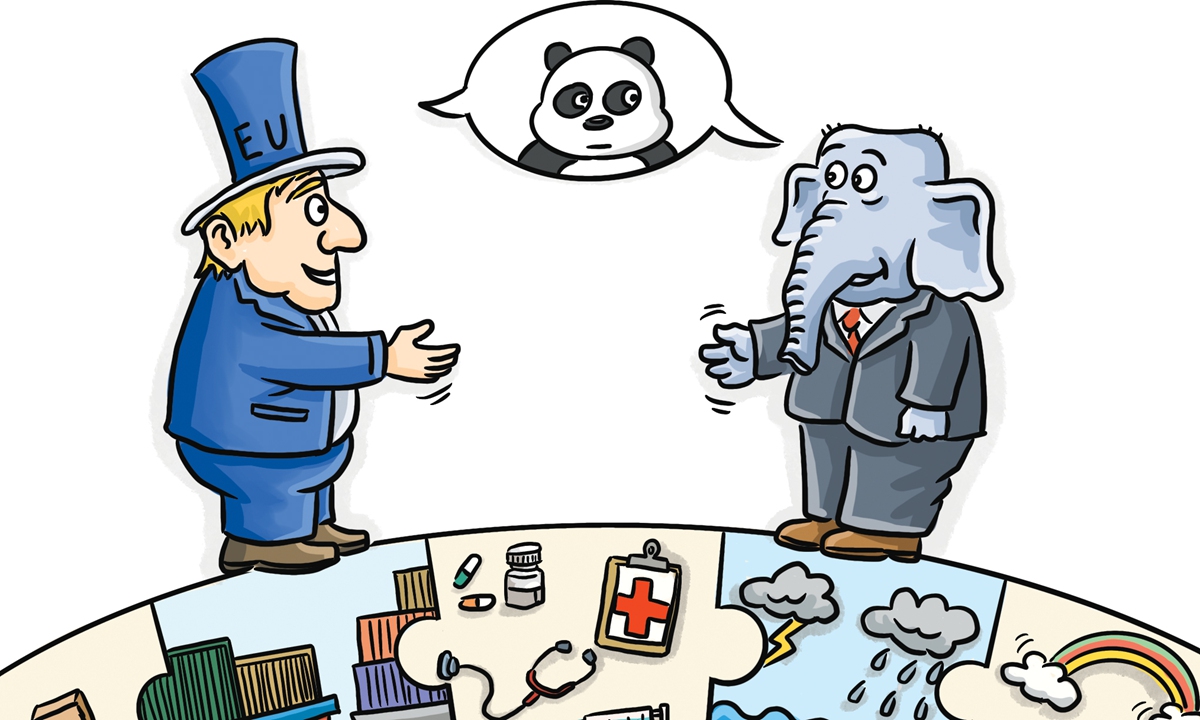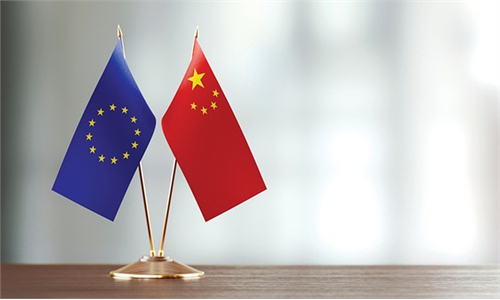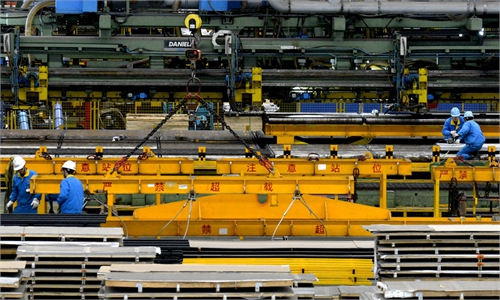
Illustration: Xia Qing
The EU and India on Saturday agreed to resume negotiations for a comprehensive Free Trade Agreement (FTA), which had been stalled since 2013, and to seek closer cooperation to combat climate change, according to Reuters. "Concerns about China bring Brussels and New Delhi closer," the report read.The EU and India are both sending their geopolitical signals, trying to get what they need from each other. From the perspective of the EU, it is trying to promote its strategic autonomy during this pandemic. The EU launched its so-called EU Strategy for Cooperation in the Indo-Pacific in April. The EU now has two important thoughts: First, Brussels is seeking for diversified partners, which is to develop more partners in the Indo-Pacific region and strengthen cooperation with regional countries. Second, in terms of trade and industry, the EU is also emphasizing not to rely too much on certain countries.
And from India's point of view, there have been ups and downs in China-India relations in recent years. With helps from countries outside the region, New Delhi hopes to gain more "bargaining chips" against Beijing. India believes it might have some advantages over China in geopolitical terms by pursuing this course of action. Moreover, as India's economic situation seriously deteriorates due to its severe pandemic situation, it expects that the FTA negotiations with the EU can boost its confidence.
However, India's expectations may not be fully fulfilled. It will take a long time for the free trade deal to go into effect. In fact, a final agreement may be difficult to reach even within a few years. India is now suffering from a second wave of COVID-19 with lethal variants crushing national healthcare infrastructure. The EU is choosing to cooperate with India now. But this may only be a drop in a bucket for India's economic shock. In addition, neither side plays a very large role in each other's trade. It will also be hard for the EU and India to negotiate on some rules and standards, including intellectual property rights and labor standards. This will extend the time of the negotiations, and will not help India relieve short-term pressure.
The same is true for Europe. Being hit hard by the COVID-19 pandemic, European companies are now looking forward to economic recovery. However, India's market seems really limited for the EU. India is the EU's 10th largest trading partner, accounting for only 1.8 percent of the bloc's total trade in goods in 2020.
Besides, India is not a mature industrialized country. Nor has it formed a close connection with the EU in terms of manufacturing industry, such as chemical and machinery industries. Thus, India may not provide much help for European companies' recovery and their expansion of external markets. Besides, the Modi administration is embroiled by the COVID-19 outbreak. It may be difficult for New Delhi to promote free trade talks with the EU at present in this context.
If the EU and India's FTA talks are against China, then they are only making clear their geopolitical claims. However, this will go against their practical economic and trade interests. Beijing is the most important trading partner for both Brussels and New Delhi regarding economic complementarities and trade volumes. In 2020, China became the EU's biggest trade partner for the first time, surpassing the US. China has also regained its position as India's largest trade partner last year. Thus, if the EU and India choose to confront China jointly in terms of economy and trade for their own geopolitical interests, it will be very detrimental to the recovery of both economies. Generally, it would be a choice that has more disadvantages than advantages.
In the post-pandemic era, both Brussels and New Delhi face the challenge of how to regain economic growth. Every country should keep being open and inclusive and should adhere to free trade. This is the way for humanity to get over this crisis. If the EU and India want to create barriers in a confrontational way and to form small circles, the outcome will be no good to anyone - neither for themselves, nor for the recovery of the global economy.
The author is a research fellow with the Institute of European Studies at the China Institutes of Contemporary International Relations. opinion@globaltimes.com.cn



